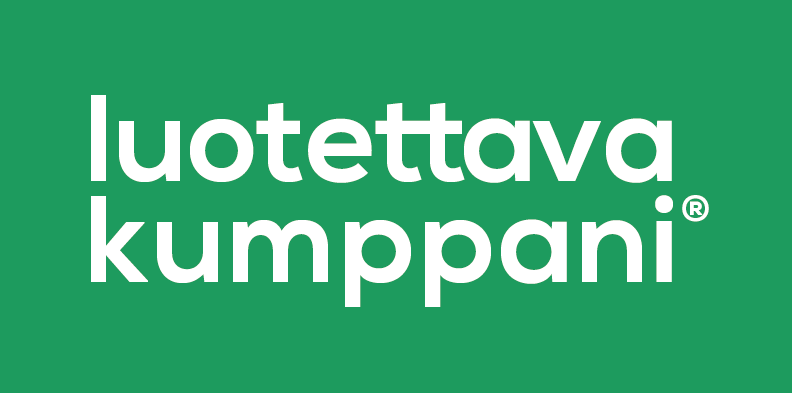Light entrepreneurs in construction, heavy entrepreneurship the only option.
The unsustainable situation on the construction sites started a few years ago. Light entrepreneurship took on a bigger role on construction sites and became a new practice. I myself wondered for a long time when people would wake up to their responsibilities and obligations. Well, it took a few years and a few serious cases of labour exploitation. The movement of the Construction Union and its recommendation to use light contractors was a turning point and is now reaching full implementation in Finland. At the moment, light contractors have no place on any construction site and that is good, although light contracting in itself is not bad for Finland’s economic growth.
The light entrepreneurial activity was a big gap in the compliance with responsibilities and obligations and an impossible situation for regulatory monitoring. Among the light entrepreneurs there were skilled professionals who found a flexible model for doing business, but there were many others. Others were often foreign workers who did not know how and under what conditions to work. This disguise of labour was eradicated in Finland in order to maintain fair and responsible practices in the construction sector.
Light entrepreneur, member of a cooperative, sole trader and owner of a limited company?
To get everyone on the same page, let’s go through the terms. Nobody may have taken a position on this, but light entrepreneurs are software customers. Billing service companies are software vendors. In the technology business world, the often used term SaaS operation would best describe billing service companies whose customers are light business owners. A light entrepreneur is not bound by any legislation or authority other than the instructions of the tax authorities. At this point, it should be understood that invoicing service providers are often limited companies and that light entrepreneurs are natural persons.
Otherwise, limited companies, cooperatives and limited liability companies engaged in traditional construction activities have been in existence long before the emergence of light entrepreneurship. Limited companies can be small or large, owner-driven or management-driven, where the owners themselves may be working on the site. Cooperatives come in many sizes and are based on the ownership of the cooperative membership, where work can be done as an entrepreneur or as an employee depending entirely on the cooperative and their practices in the same way as in a limited company by its owners. The cooperatives are very clearly one-man businesses where skills are sold to customers. Each of these is linked by clear corporate forms and legal responsibilities and obligations.
The debate on the dividing line between employment and self-employment has been heated in the construction sector. The reformed Employment Contracts Act will give more weight to the overall assessment, where the principle of different legal entities can be ignored in cases of employment-entrepreneur demarcation. This is not very sustainable and clarity cannot be achieved, at least not for the first 2 years. Therefore, the focus should be on the employment contract, the entrepreneur’s risk and the entrepreneur’s return, where it can be clearly established whether it is an employment relationship or self-employment.
What makes it challenging, however, is the prevailing lack of knowledge and understanding of business forms. For example, the owner of a limited company and a member of a co-operative are in a very similar legal position, yet a client may say, based on unfamiliarity, that a limited company is a co-operative even though the work is actually done in exactly the same way. Consequently, the construction industry should have a similar atmosphere of openness and discussion, as has been achieved in many other industries in Finland.

What is happening now on construction sites where light contractors were used?
A very enlightened estimate is that a number of highly skilled professionals will seek membership of cooperatives or set up their own limited company, which is again a very resource and investment-heavy form. This other group, trying to find a shortcut to happiness in the construction industry, will find the easiest solution in self-employment, as billing service companies have started to offer the self-employed model. The same problems remain and there is no avoiding labour exploitation cases. The deal is done at this point.
The solution, as I see it, is to use responsible limited companies and cooperative entrepreneurs, where the rules are clear and regulatory supervision can always be carried out. This clarifies and still gives flexibility to the construction sector while respecting the different forms of entrepreneurship. It is good to remember that entrepreneurship is still the backbone of Finland and discriminating against it in one form or another is not sustainable.
Summary
Summa summarum, the Building Federation has made a very appropriate recommendation on the use of light contractors. On a positive note, the major main contractors have also been very active in taking up the issue. The challenge I see is what happens to the forms of enterprise that were accepted before the emergence of the light entrepreneur form, such as the cooperative form, and how we can ensure that there are no further hidden cases of exploitation in the subcontracting chain in the form of a business name, because that is what it may already smell like.
The last thing to say is that the construction sector is in decline and difficult times lie ahead. Responsible behaviour and adherence to obligations is important, but it is vital to support entrepreneurship, whether in the construction sector or in other sectors. Eurowork is a co-operative that supports entrepreneurship and has a model that aims to contribute to the activities of its members.









